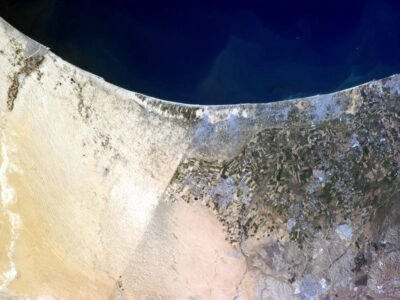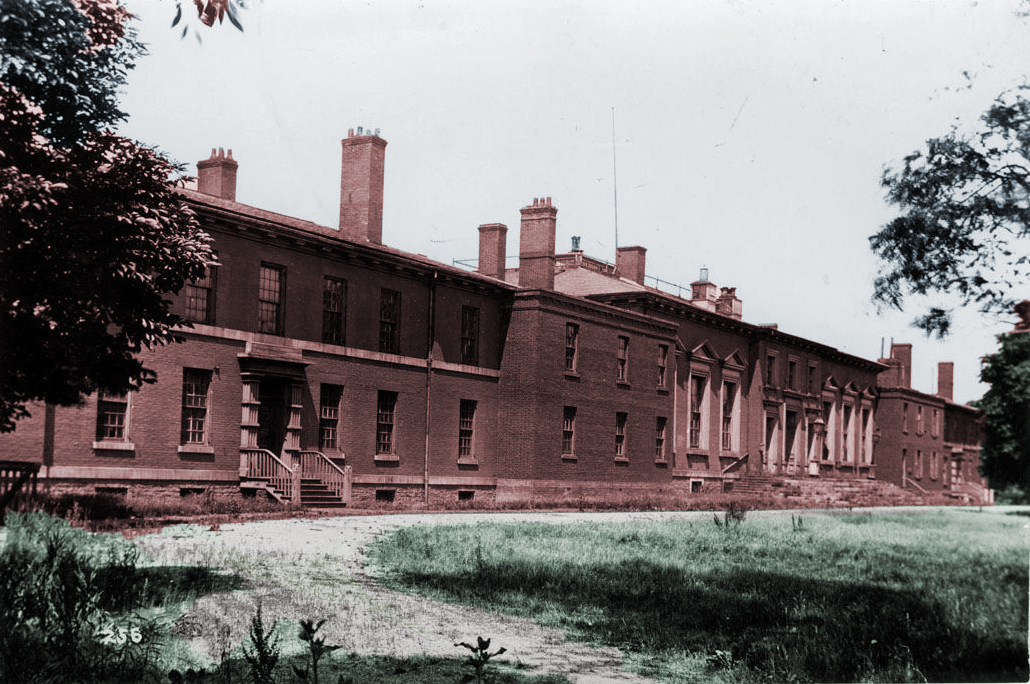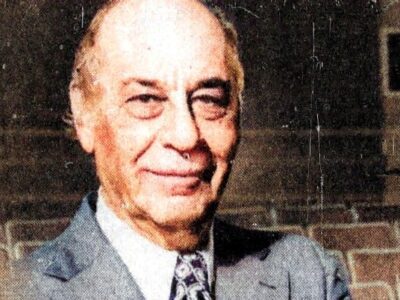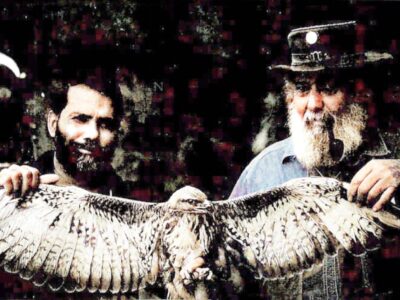The White Space Between, the novel by Montrealer Ami Sands Brodoff that won the 2009 Canadian Jewish Book Award for fiction, focuses on Willow Ives and her mother, Jane Ives, a Czech-born Holocaust survivor formerly known as Jana Ivanova, and Willow’s need to understand the persistent gaps in her mother’s past.
Much of the story unfolds in Montreal, where Willow, following in her late grandfather’s footsteps, becomes a talented professional puppeteer; she creates a diverse family of marionettes that she gives life and voice to, seeming to need this imaginary world as a child needs dolls. Because her mother has kept much of her wartime experiences a blank, Willow knows hardly anything about her father, who becomes a mythic figure in her imagination.
When her mother (who had been living in New Jersey) decides to return to Montreal to testify for the Witness Foundation, Willow feels mixed emotions. “She is unnerved that her mother would now decide to tell her story to strangers, a story Willow has been told only in bits and pieces, fragments that don’t quite fit into a whole. And yet in truth, she has been afraid to hear this story, as much as she longs and needs to, settling up here in Montreal to sleuth it out on her own.”
Willow’s quest takes her to the top of Montreal’s mountain and also to Prague; she eventually solves the riddle of her paternity and fills in many of the white spaces in her psychic identity card. The book offers a good example of what Toronto poet-essayist Kenneth Sherman meant when he described as “void and voice,” the two opposing impulses of Holocaust literature, the simultaneous imperatives to hide and yet to tell.
For the first three decades or so after the Holocaust, relatively few writers seemed willing to venture into that dark, problematic and largely uncharted literary terrain. Then, shortly after the ground-breaking TV series “Holocaust” in the mid-1970s, Elie Wiesel commented that once no one wanted to talk about the Holocaust and suddenly everyone seemed eager to do so.
That eagerness continues: today Holocaust lit still dominates Jewish letters. A century from now, how many of these books will still be read? We like to believe that the best — by authors like Wiesel, Anne Frank, Primo Levi and Aharon Appelfeld — will survive, while less notable works will submerge into literature’s invisible bedrock.
In my reading of The White Space Between, the book seemed to start slowly but the characters became more sympathetic and intriguing with each turning page. Brodoff’s prose bears an affinity to the work of Margaret Laurence in her exploration of the mother-daughter relationship, her periodic insertion of old photos and memory capsules into the narrative, and her search for the basic humanity in people. Brodoff, who has published a previous novel and collection of short stories, is a writer worth watching.
* * *
The Diary of Laura’s Twin by Kathy Kacer, took the youth literature prize at the 2009 Canadian Jewish Book Awards. Like The White Space Between, it is published by the Second Story Press.
Part of the publishing house’s successful series of Holocaust Remembrance Books for Young Readers, The Diary of Laura’s Twin tells the story of a modern-day Jewish girl who is “twinned” with Sara Gittler, a child from the Warsaw Ghetto. The narrative alternates between Laura’s and Sara’s diametrically different worlds, which are at least 60 years apart, and is illustrated by many photographs of the latter.
Again we see the familiar pattern of a young protagonist, Laura, who fills in the void of her unknowing by reading Sara’s Holocaust diary, then speaks about her “twin” at her bat-mitzvah ceremony. Inspired by Sara’s bravery, Laura finds the courage to act after learning of a friend’s silence after possibly witnessing the desecration of a Jewish cemetery.
Holocaust remembrance that sparks social justice: a winning formula for mass-market juvenile fiction. No doubt the book will be popular with young Jewish and Gentile readers alike.
* * *
Isa Milman’s Prairie Kaddish, winner of the 2009 Canadian Jewish Book Award for poetry, seems to redefine the meaning of poetry. Here we have a book of remembrance, a sort of historic scrapbook about the former Jewish agricultural settlement of Lipton, Saskatchewan, and the picturesque graveyard that remains.
Milman includes maps, photographs, letters, lists of names and Yiddish subtitles between her freeform poetic creations. In poems such as “Immigrant Song,” she documents her discovery of the Lipton experiment, right from the moment of her first visit to the cemetery.
As if I heard a drum
struck by an invisible hand,
as if after thirty years in Canada
the grass sang me a welcome song.
As if those Jewish bones called me
meydele, said they’d waited for me so long,
as if they laid their hands on my eyes
to unblind me, and pulled me close to listen
as they whispered fragments of their stories,
slices of their dreams…
The poetry is vibrant and accessible, and has caught on like a prairie wildfire after a recent review in Forward. A rarity for a book of poetry, Prairie Kaddish has already gone into a second printing. The publisher is Coteau Books of Regina (www. coteaubooks.com). ♦
© 2009






